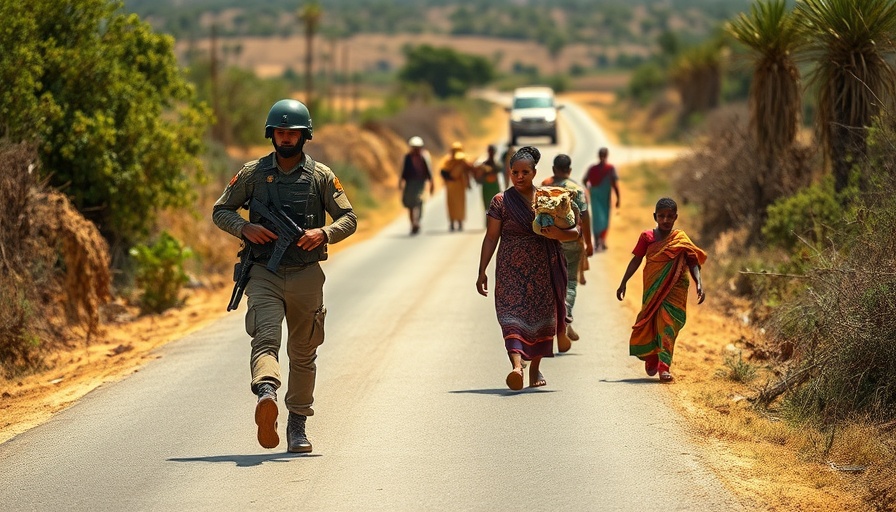
The Need for Enhanced Road Safety in the Central African Republic
Traffic accidents in the Central African Republic (CAR) have reached alarming numbers, leading to a pressing need for immediate intervention. Following several tragic accidents, the United Nations Peace Mission, known formally as MINUSCA, has initiated joint patrols alongside the Central African Internal Security Forces to address this growing concern. On August 27, an operational milestone was achieved in Bangui, as this initiative aimed not only to enhance road safety but also to foster a sense of community trust between security forces and locals.
In Enhancing road safety in Central African Republic: MINUSCA's joint patrol initiative, the discussion dives into critical efforts to address road safety challenges faced in the region, leading us to delve deeper into this vital subject.
Understanding MINUSCA's Approach to Road Safety
MINUSCA's proactive measures include a visible security presence on the roads, which is critical to deterring reckless driving behaviors. The focus on educational outreach during these patrols is particularly noteworthy; participating officers directly engaged with motorcycle riders and taxi drivers to impart essential safety protocols. Proper understanding and adherence to road rules, such as the importance of speed limits and conversation-free driving, are crucial components in decreasing the frequency of accidents.
Community Engagement and Its Benefits
Through these community outreach programs, MINUSCA aims to promote responsible driving habits. By facilitating discussions on accident prevention measures, they educate road users on vital topics—such as the use of seatbelts, wearing helmets, and the dangers associated with mobile phone usage while driving. This strategy not only engages the public but also prompts them to become advocates for road safety, thereby amplifying the positive impact of the initiative.
Collaboration with Local Authorities
Collaborative efforts with national authorities, like the Ministry of Transport and Civil Aviation, underpin MINUSCA's initiatives. Annual road safety campaigns stemming from these collaborations emphasize training sessions that focus on traffic rules compliance. The proposal to further educate unlicensed drivers showcases a commitment to addressing the root of the problem—poor training and lack of awareness among drivers.
Lessons from Global Best Practices
Examining successful global models underscores the necessity of continuous engagement with community members for effective road safety strategies. Similar initiatives led by law enforcement in countries with high traffic accident rates have involved educational workshops, community celebrations centered on safe driving, and the introduction of stricter traffic laws. By adopting elements from these best practices, CAR can pave the way for a more rounded approach to road safety.
Fostering Trust Between Security Forces and Locals
One objective of MINUSCA's patrol initiatives extends beyond immediate road safety; it seeks to boost the trust level between local inhabitants and security personnel. Experiences of collaboration in everyday activities can elevate the rapport between these two groups, which is often strained in post-conflict scenarios. When communities perceive security forces as allies rather than adversaries, they are likely to participate actively in safety discussions, thus leading to sustained improvements.
The Future of Road Safety in the CAR
As these initiatives gain traction, it is vital to consider the future landscape of road safety in the CAR. Government investment in infrastructural improvements and more comprehensive safety campaigns will be necessary to maintain positive behavioral changes among road users. An ongoing commitment to establishing a culture of safety is essential for reducing accidents, saving lives, and fostering a more secure environment for all citizens.
Conclusion: Take Action for the Future
As the population increasingly embraces these safety campaigns, a crucial question arises: how can individuals participate in enhancing road safety in their communities? Engaging with local representatives, attending awareness campaigns, and practicing responsible driving habits are necessary actions that every citizen can take. By addressing these issues collectively, the people of the Central African Republic can advocate for better road safety standards and ensure a safer tomorrow for future generations.
 Add Row
Add Row  Add
Add 




Write A Comment